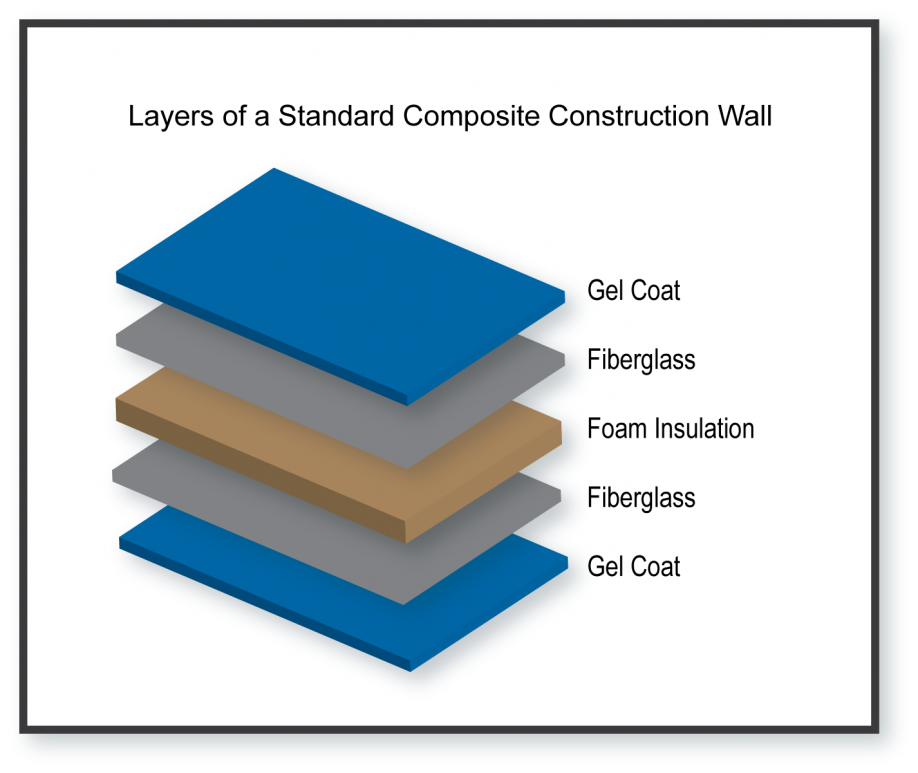Exploring the Uses and Advantages of Recycled Composites in Modern Industries
In today's quickly evolving commercial landscape, the utilization of recycled composites has actually gathered increasing interest for its potential to redefine standard manufacturing practices. The combinations of recycled materials with sophisticated composite technologies provides a promising method for enhancing sustainability, strength, and cost-efficiency across different sectors. As sectors seek ingenious services to resolve environmental issues and boost functional performances, the incorporation of recycled compounds becomes a compelling choice. This shift towards lasting methods not just lines up with global preservation efforts yet also offers a myriad of advantages that hold the secret to forming the future of contemporary manufacturing techniques.
Ecological Benefits of Recycled Compounds
The application of recycled compounds in modern-day sectors provides considerable environmental benefits, contributing to the reduction of waste and the preservation of all-natural sources. By including recycled compounds right into manufacturing processes, markets can reduce their reliance on virgin materials, thereby reducing the amount of waste generated and the energy needed for removal and manufacturing. This shift towards utilizing recycled composites helps in drawing away materials from garbage dumps, minimizing the concern on waste management systems, and lowering greenhouse gas exhausts connected with traditional production techniques.
Moreover, the use of recycled compounds advertises the conservation of natural deposits such as lumber, minerals, and water, which are commonly diminished with the extraction and handling of resources (composites). By prolonging the lifespan of products through recycling, markets can assist protect environments and biodiversity by lowering the need for new sources. Generally, the adoption of recycled compounds in modern sectors plays an essential duty in advertising sustainability and reducing the ecological impact of manufacturing processes
Boosted Longevity in Product Manufacturing
With a concentrate on durability and robustness, integrating recycled composites into item production procedures improves durability and sustainability. By using recycled compounds, manufacturers can develop products that are not only solid but likewise immune to damage, making them perfect for long-lasting usage in numerous markets. The mix of various materials in recycled compounds can frequently lead to enhanced strength and toughness compared to conventional materials, giving an economical option for producing resilient items.
Among the vital benefits of using recycled compounds in product manufacturing is the capacity to customize the product homes to fulfill specific longevity requirements. By adjusting the structure and manufacturing strategies, suppliers can tailor the recycled compounds to withstand severe environmental problems, hefty lots, or constant usage without compromising on efficiency. This flexibility in design and production enables the development of extremely sturdy products that maintain their honesty in time, decreasing the requirement for regular substitutes and inevitably contributing to a more sustainable manufacturing process.
Cost-Effectiveness and Economic Benefits
Incorporating recycled composites into product production not just boosts longevity and sustainability however additionally provides considerable cost-effectiveness and financial benefits. Using recycled compounds can lead to minimized product costs as recycled materials are commonly more economical than virgin materials. Additionally, recycling composite products can decrease waste disposal expenses and decrease the requirement for garbage dump room, adding click here for more to general price financial savings for industries.

Development and Design Flexibility With Recycled Compounds
Using recycled composites in modern-day sectors supplies unmatched possibilities for development and design flexibility. By integrating recycled materials right into composite manufacturing procedures, business can push the borders of standard style constraints and discover new opportunities. The convenience of recycled composites permits the development of complicated shapes and structures that could not be possible with traditional materials.
One of the key benefits of recycled composites is their ability to be built into different types, providing developers the flexibility to trying out special sizes and shapes. composites. This versatility opens a globe of innovative possibilities, enabling the advancement of lightweight yet resilient items that meet the particular needs of various industries
Moreover, the usage of recycled composites promotes lasting techniques and supports the round economic situation by decreasing waste and decreasing the environmental effect of manufacturing processes. This concentrate on environmentally friendly style services lines up with the expanding fad towards sustainability in contemporary markets, making recycled compounds a valuable resource for cutting-edge and forward-thinking business.
Applications Across Different Industries
Recycled compounds find varied and impactful applications throughout a broad range of sectors due to their distinct buildings and sustainability benefits. The aerospace sector benefits from recycled composites in the manufacturing of airplane parts, review where the materials' strength-to-weight ratio is important for making sure security and efficiency. The adaptability and sustainability of recycled composites make them important throughout different industries, driving technology and environmental stewardship.
Final Thought
To conclude, the use of recycled composites in modern-day markets offers significant ecological benefits, boosted sturdiness in product production, cost-effectiveness, and financial advantages. Furthermore, making use of recycled composites resource permits development and style adaptability across numerous sectors. On the whole, the fostering of recycled compounds provides a lasting and sensible solution for satisfying the requirements of the industry while likewise minimizing ecological effect.

One of the essential benefits of utilizing recycled composites in item production is the ability to customize the product homes to satisfy particular longevity needs. Making use of recycled composites can lead to reduced product costs as recycled products are frequently less costly than virgin materials. The aerospace sector benefits from recycled compounds in the production of airplane parts, where the products' strength-to-weight ratio is crucial for ensuring security and performance.